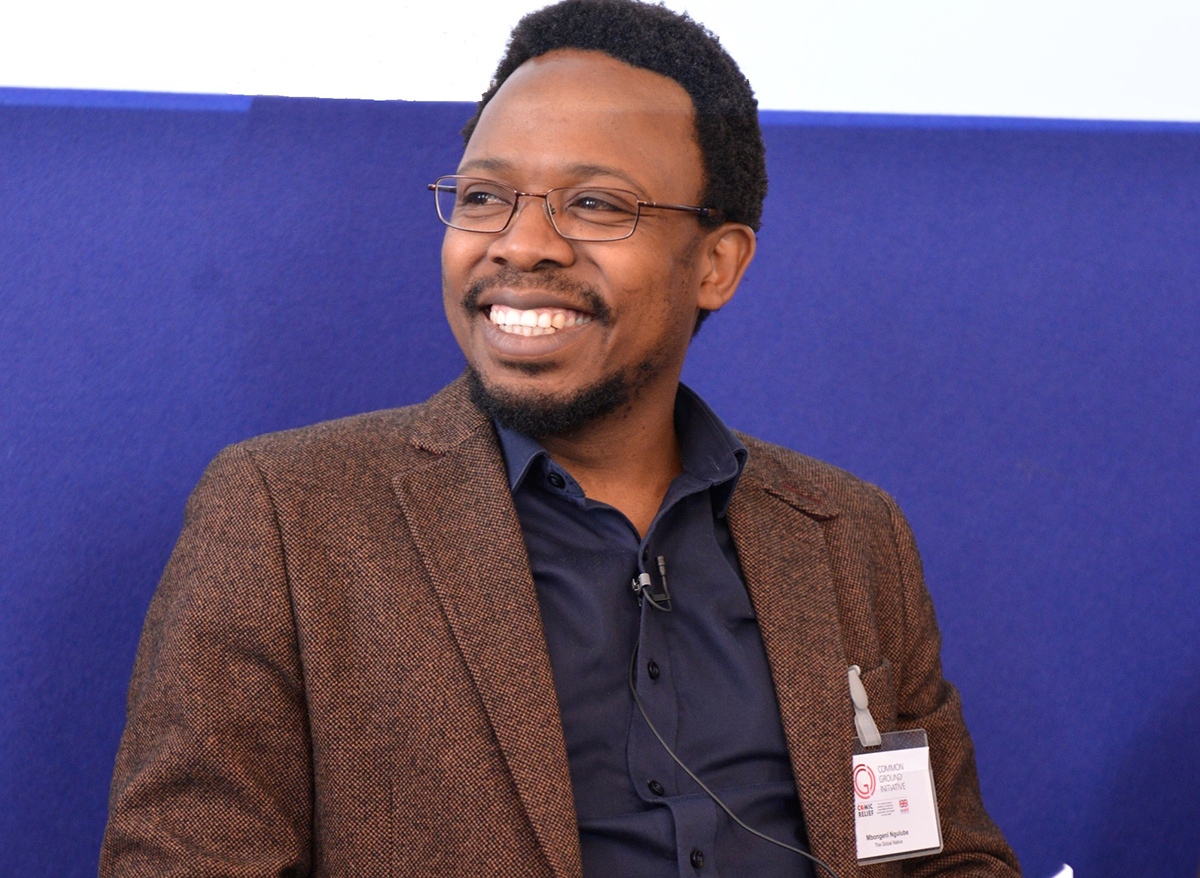
“In terms of access to housing and right to the city, the question is, how do you help poor people access enough power to lay claim to space?”
This week our 2017-2018 course kicks off once again with an introduction to Development Theory in a three-day workshop led by guest professor and former student of our program Mbongeni Ngulube, an architect and urban designer whose research focuses on the impact of diaspora and social movements on development.
Mbongeni’s critical views of development theory and practice serve as a crucial starting point from which to understand its complexity and the often flawed thinking that informs strategies geared at eradicating systemic problems such as urban poverty.
System Capture Approach
In dealing with these issues, both his research and experience working with poor urban communities in South Africa have led him to ascribe to the “system capture” approach, a model that can be applied in poverty alleviation and which he believes should also apply to urbanism.
 “If you understand the systems around poverty, you realize that it is those systems that have to be perverted in order to change the situation. In terms of access to housing and right to the city, the question is how do you help poor people access enough power to lay claim to space, to housing and to processes to build their own shelter and cover basic needs. Those things cannot be decoupled from economics and socio-political issues,” he said in an interview with Mundus Urbano (MU) last year.
“If you understand the systems around poverty, you realize that it is those systems that have to be perverted in order to change the situation. In terms of access to housing and right to the city, the question is how do you help poor people access enough power to lay claim to space, to housing and to processes to build their own shelter and cover basic needs. Those things cannot be decoupled from economics and socio-political issues,” he said in an interview with Mundus Urbano (MU) last year.
The idea is that communties “capture” —or repurpose to their advantage—the very system that exploits them. In the MU interview (see below at 13:53), he exemplifies this approach with a real-world case of a community in Bangkok that came under threat of eviction when an urban regeneration policy declared the city a heritage-based tourism destination. Local activists and academics, in turn, were able to delcare their community as a heritage site itself due to its historical signifance, essentially co-opting the policy to ensure its protection.
It’s an example of how an alternative approach to development can play out in the context of urbanism and how these two fields are inextricably linked through underlying systems of power.

A Historical Perspective
“One of the missing links in development approach, generally, is this a-historical approach to problems. We think of our project as if poverty just dropped out of the sky somewhere and now we are trying to fix it. And because you leave out the history of the causes of these things, you actually ignore the cause, because you don’t really address the real problem. What you are addressing at the end are just symptoms of the problem.”
So how do architects and planners use this when confronted with a project?
“If I was to work in a slum-community, before I do anything, I would need to understand the historical causes of that. What is the history of a place? Where are the sites of power? That is where you intervene.”
To hear more about Mbongeni’s trajectory and approach, watch the full interview below or read the transcript.
Mbongeni is currently pursuing a PhD on social and cultural anthropology, looking at the migration-development nexus, at the Katholieke Universiteit Leuven where he works at the university’s Institute for Anthropological Research in Africa. He is a Mundus Urbano Scholar for UIC and TUD Darmstadt and has also taught at the Institute for Development Studies located at the National University of Science and Technology, in Bulawayo, Zimbabwe. He collaborated as an editor and author of Reflections and Development in Context, our program’s publications.

